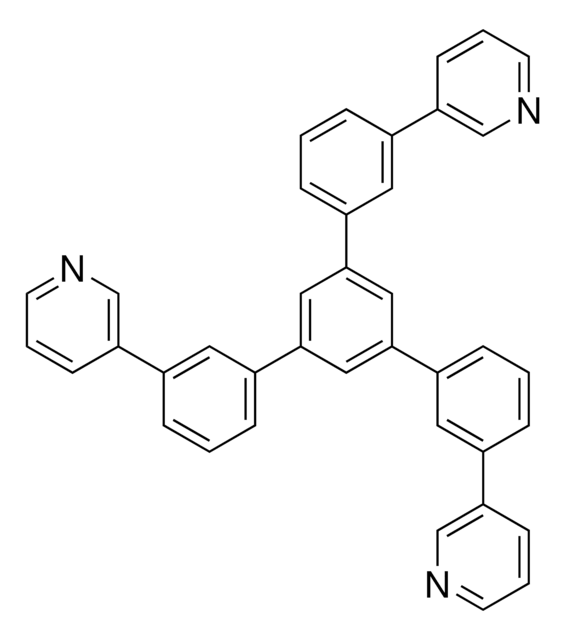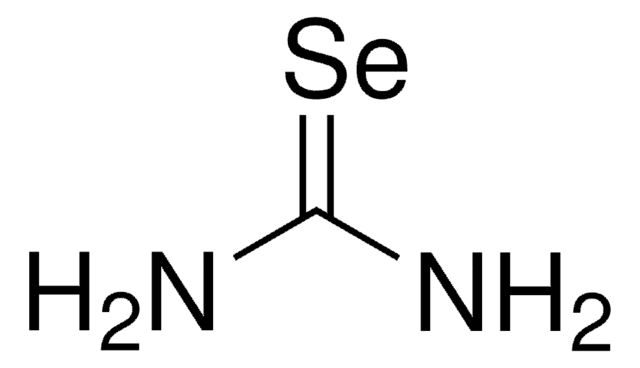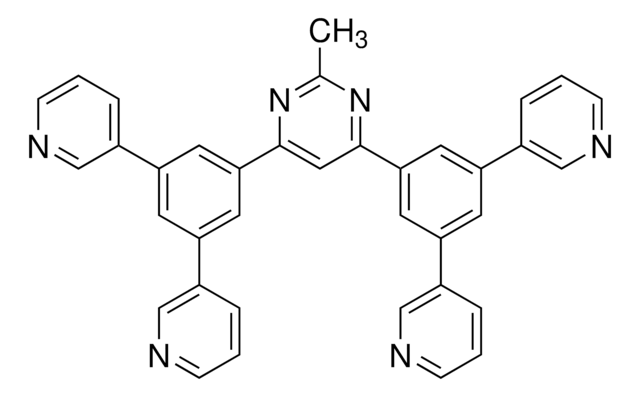900953
3TPYMB
sublimed
Synonym(s):
3,3′,3′′-[Borylidynetris(2,4,6-trimethyl-3,1-phenylene)]tris[pyridine], Tri[3-(3-pyridyl)mesityl]borane, Tris(2,4,6-trimethyl-3-(pyridin-3-yl)phenyl)borane
About This Item
Recommended Products
Quality Level
Assay
≥98%
form
powder
greener alternative product characteristics
Design for Energy Efficiency
Learn more about the Principles of Green Chemistry.
sustainability
Greener Alternative Product
greener alternative category
SMILES string
B(c5c(c(c(cc5C)C)c6cnccc6)C)(c3c(c(c(cc3C)C)c4cnccc4)C)c1c(c(c(cc1C)C)c2cnccc2)C
InChI
1S/C42H42BN3/c1-25-19-28(4)40(31(7)37(25)34-13-10-16-44-22-34)43(41-29(5)20-26(2)38(32(41)8)35-14-11-17-45-23-35)42-30(6)21-27(3)39(33(42)9)36-15-12-18-46-24-36/h10-24H,1-9H3
General description
Storage Class Code
11 - Combustible Solids
WGK
WGK 3
Flash Point(F)
Not applicable
Flash Point(C)
Not applicable
Choose from one of the most recent versions:
Certificates of Analysis (COA)
Don't see the Right Version?
If you require a particular version, you can look up a specific certificate by the Lot or Batch number.
Already Own This Product?
Find documentation for the products that you have recently purchased in the Document Library.
Customers Also Viewed
Articles
Explore the eco-friendly potential of organic thin film transistors (OTFTs) for detecting chemical analytes, identifying viruses, and assisting in health diagnostics. This mini-review highlights challenges of achieving sustainability, safety, and biodegradability of each component of an OTFT sensor.
Explore the eco-friendly potential of organic thin film transistors (OTFTs) for detecting chemical analytes, identifying viruses, and assisting in health diagnostics. This mini-review highlights challenges of achieving sustainability, safety, and biodegradability of each component of an OTFT sensor.
Explore the eco-friendly potential of organic thin film transistors (OTFTs) for detecting chemical analytes, identifying viruses, and assisting in health diagnostics. This mini-review highlights challenges of achieving sustainability, safety, and biodegradability of each component of an OTFT sensor.
Explore the eco-friendly potential of organic thin film transistors (OTFTs) for detecting chemical analytes, identifying viruses, and assisting in health diagnostics. This mini-review highlights challenges of achieving sustainability, safety, and biodegradability of each component of an OTFT sensor.
Our team of scientists has experience in all areas of research including Life Science, Material Science, Chemical Synthesis, Chromatography, Analytical and many others.
Contact Technical Service











